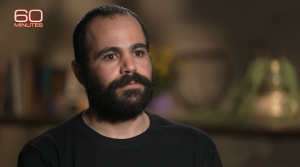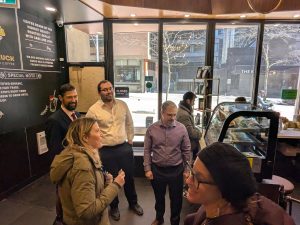Rabbi Avi Finegold
FOUNDER, THE JEWISH LEARNING LAB, MONTREAL
Rabbi Philip Scheim
BETH DAVID B’NAI ISRAEL BETH AM CONGREGATION, TORONTO
Rabbi Finegold: I find myself in a unique position. After focusing primarily on education for many years, I have recently accepted my first full-time pulpit. While there is no single aspect of this job that is unfamiliar to me – having officiated at many life cycle events, managed large teams and taught extensively – I have never done all of them at once, and certainly not for a large congregation of over 700 families.
What advice can you share? Are there any fundamentals that I should think of before I am in over my head? What does the rabbinate look like from the inside, as opposed to how the public perceives it?
Rabbi Scheim: First, mazal tov on your appointment! As a former Montrealer, I am aware of the long and illustrious history of the Spanish and Portuguese Synagogue, and the eminent line of rabbis you follow. Your familiarity with most of the official functions of the congregational rabbinate bodes well for your transition. The challenge, of course, is the convergence of so many of these events, often on the same day. After 36 years in this business, I confess that the days that include five unveilings, a funeral and two weddings, still tend to be difficult for me.
My best piece of advice would be to be human, but not super-human. You have the personal skills and education necessary to make a dramatic impact on your congregants’ lives. Accordingly, they will appreciate your need for down time, so that, when necessary, you will be better energized to meet their needs.
One aspect of the rabbinate not obvious to the community is the frequent need to compartmentalize conflicting emotions. Driving to a wedding, just after having learned devastating news about a congregant, you know that your congregant’s dire situation will be on your mind as you stand under the chupah. Parking that fear while celebrating a simchah is something we learn to do. It’s not easy, but it’s essential to the needs of the moment.
Thankfully, not every day will be so challenging. There are easier days, including many good, uncomplicated moments with a community that really can become, in time, like family.
READ: SAME PEOPLE CONDEMNING TRUMP’S MORAL EQUIVALENCE APPLY JUST THAT TO PALESTINIAN TERRORISM
Rabbi Finegold: Do you find that you have to remind others, as well as yourself, that you are not your job – that a rabbi is a person, too? In social situations, I often find that people have a hard time not unloading something ethical or spiritual on me at a moment when I just want to be part of the crowd.
To be sure, I think that people absolutely should feel comfortable asking me anything. We got into this to help others, to be an ear and a shoulder, but sometimes when I am out at night, just trying to have a drink, someone will approach me with a rabbinical question. Their blurring of the lines makes it difficult for me to remember that I do not always have to be on.
Rabbi Scheim: Yes, the separation of role from person is difficult in surroundings where you are known. Thus, on occasion, I have enjoyed being on a flight where nobody knows me, where there is zero chance of being asked a “rabbi question.” But in truth, when those questions happen, I really don’t mind them – especially when I am alone. If I am with others in a social context and someone asks a rabbinic question requiring more than a one-sentence answer, I will invite my questioner to call me at the office or email me, at which time I will be happy to respond fully.
One of the more interesting situations when separation becomes challenging, occurs when seated as a guest at a simchah table, when those seated next to me spontaneously confess their lack of synagogue attendance and other observance deficits. My response is to suggest that I only hear confessions during office hours.
But in all honesty, I must admit that the intrusions into my personal space that I experience on occasion are far outweighed by the satisfaction that comes from playing a meaningful role in the lives of people who, overwhelmingly, are good and deeply considerate. May your new role provide such moments of naches in great abundance.







